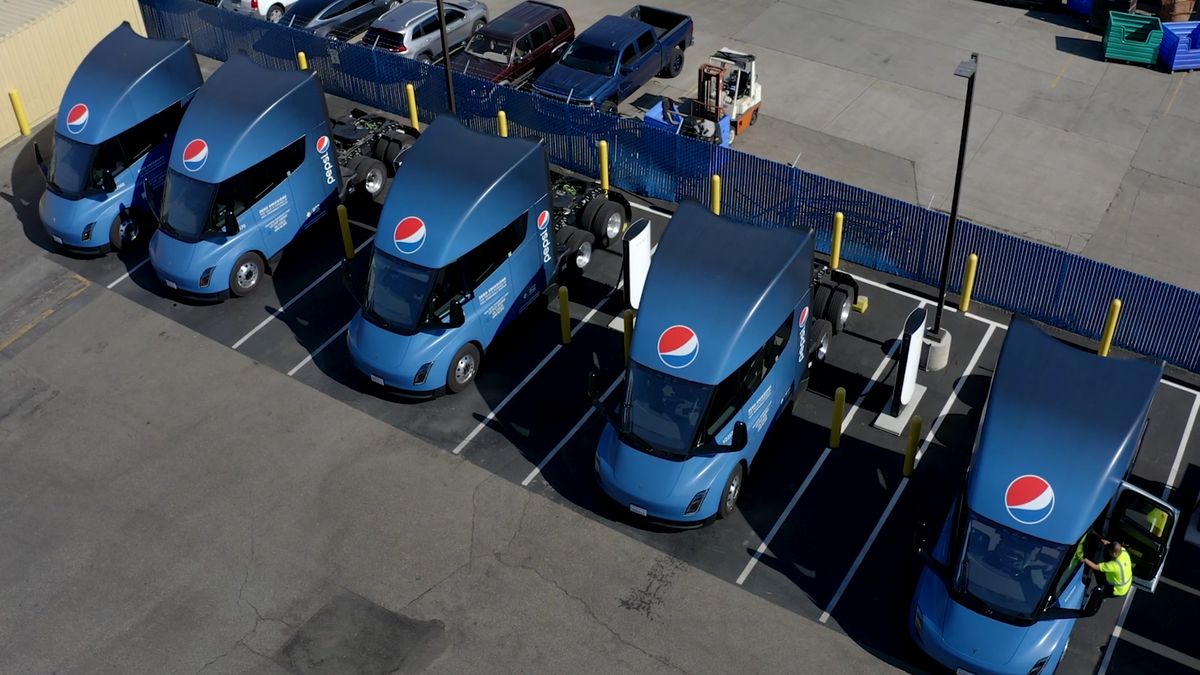Real world testing data reveals that the Tesla Semi truck can travel approximately 400 miles per charge and can recharge to 80 percent in just 45 minutes. Considering the size of its onboard battery pack (equivalent to ten Model S packs), this is quite impressive. In a recent three-week test across 22 electric freight-hauling tractors, the Tesla Semi outperformed its competitors in terms of miles driven, proving that electric trucks can match the productivity of diesel trucks in a day’s work.
Compared to competitors like Nikola, BYD, Freightliner, and Volvo, the Tesla Semi demonstrated greater uptime and covered more miles per day. PepsiCo is currently using dozens of Semis in Northern California, and during the test, one driver travelled 1,076 miles in a single day while hauling over 70,000 pounds of cargo. This driver only needed three brief partial-battery charges, showcasing the capabilities of the Tesla Semi.
“When we looked at the metrics during the run, we were very pleased with how the Semi performs,” said Amanda DeVoe, director of PepsiCo’s fleet transformation and strategy. “What was most meaningful is that the Semi aligned with how our business operates.”
For eighteen days, beginning on September 11, the North American Council for Freight Efficiency tracked these trucks, gathering information on charging infrastructure, cost of ownership, driving performance, and more. It should be noted that not all trucks in the test were active every day, and there were no deliberate attempts to set new distance or charging records.
The Tesla Semi’s success in this test may be attributed to the fact that Pepsi’s drivers focused more on long-distance distribution, while other manufacturers prioritized regional stops. For instance, the Tesla Semi had just five stops on its longest mileage day, while the Nikola made 13 deliveries and one of the eCascadias did 10.
This test also highlighted the potential importance of fast charging over outright range. These trucks can utilize mega-quick 750kW chargers in their depots, which means a smaller and cheaper battery may be more suitable for shorter range regional transport. Mid-shift charging could provide significant benefits for smaller carriers, saving them thousands of dollars on tractor purchases if they can get by with a smaller battery.
Perhaps more significant than Tesla’s electric victory is the fact that Pepsi can achieve the same mileage with an electric truck as with a diesel one. The required charging stops did not significantly impact the overall efficiency and viability of the trips.
It’s important to note that Tesla is still lagging behind Freightliner and Volvo in terms of scaling up Semi production. These established manufacturers have decades of proven reliability and service, which will make it challenging for Tesla to gain the trust of trucking companies. It will take many years of industry experience for Tesla to reach a similar production level and build a reputation in the trucking industry.
Denial of responsibility! Vigour Times is an automatic aggregator of Global media. In each content, the hyperlink to the primary source is specified. All trademarks belong to their rightful owners, and all materials to their authors. For any complaint, please reach us at – [email protected]. We will take necessary action within 24 hours.


